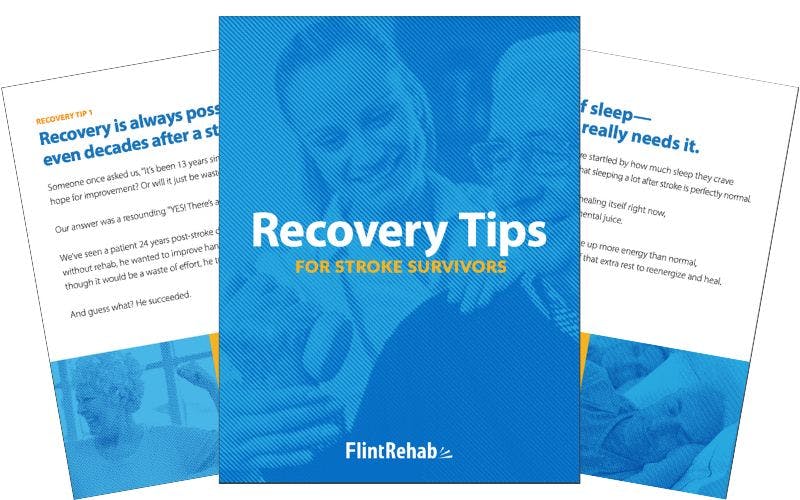Should you administer aspirin for emergency stroke treatment? While aspirin may be administered to acute stroke patients in the hospital, it should never be used as an emergency stroke treatment outside of the hospital setting. If someone is showing signs of a possible stroke, individuals should immediately call for emergency medical attention and not administer any medications, including aspirin.
Although it is possible that aspirin could help the individual experiencing a stroke, it also has the potential to make the stroke more severe. Therefore, the only individual who should provide aspirin for emergency stroke treatment is a doctor who has performed a brain scan and can confirm the individual’s diagnosis.
This article will explain why certain medications, such as aspirin, can be dangerous if administered without a doctor’s approval. It will also outline how to safely use aspirin for emergency stroke treatment and describe how aspirin may be used for stroke prevention.
Use the links below to jump directly to any section of this article:
- Should individuals use aspirin for emergency stroke treatment?
- TPA vs aspirin for stroke
- When is aspirin a safe stroke treatment option?
- Can aspirin stop a stroke?
- Using aspirin to prevent recurrent stroke
- Aspirin as a primary stroke prevention measure
- Can aspirin prevent a stroke?
Is It Recommended to Use Aspirin for Emergency Stroke Treatment?
Aspirin is an anti-inflammatory medication that is commonly used to treat pain, fever, and swelling. Taken daily at a low dose, aspirin can also be used as an antiplatelet medication to reduce the risk of developing blood clots. This can lower the risk of heart attack and ischemic stroke, both of which are caused by clots that have blocked blood vessels.
However, since aspirin thins the blood, it also has the potential to cause major bleeding and worsen the outcomes of hemorrhagic stroke, a type of stroke caused by bleeding in the brain due to a ruptured blood vessel.
Although ischemic stroke is much more common, accounting for 87% of all strokes, there is no reliable way of knowing whether a person is having an ischemic stroke or hemorrhagic stroke without a brain scan. Since the adverse effects of taking aspirin for a hemorrhagic stroke can be significant, it is essential to wait until a brain scan has been performed before administering aspirin for emergency stroke treatment.
With this in mind, aspirin should not be self-administered by individuals experiencing a stroke, nor given by their family members. Rather, the only individual who should administer aspirin for emergency stroke treatment is a medical professional with a full understanding of the patient’s current diagnosis and relevant medical history.
If it is deemed appropriate, doctors may recommend using aspirin within the first 24-48 hours after an ischemic stroke. It may be administered alone or with another antiplatelet medication in a treatment referred to as dual antiplatelet therapy.
TPA vs Aspirin for Stroke
Clot-dissolving medications, such as tissue plasminogen activator (tPA), are frequently used in the hospital setting to treat ischemic stroke. These medications work differently than aspirin or dual antiplatelet therapy (the administration of aspirin with another antiplatelet medication). While similar, each of these treatment options are unique:
- Aspirin: antiplatelet medication (reduces risk of clots) that may be used within the first 24-48 hours after an acute ischemic stroke or taken daily as a preventative measure; this can reduce the likelihood of another clot occurring or an existing clot becoming larger
- tPA: thrombolytic medication (breaks down blood clots) that is often administered intravenously within the first 3 hours after an ischemic stroke; must seek emergency medical services promptly after stroke symptoms occur in order to receive tPA
- Dual antiplatelet therapy (DAPT): this is a combination of aspirin and another type of antiplatelet medication known as a P2Y12 inhibitor, that may be administered within 24 hours of ischemic stroke and throughout the first few weeks of recovery; compared to aspirin alone, DAPT reduces the risk of recurrent stroke, but heightens the risk for major bleeds
When is it Safe to Use Aspirin for Emergency Stroke Treatment?
Following a stroke, there is a specific time frame in which pharmacological treatments can be safely administered within the hospital setting. In individuals experiencing an ischemic stroke, tPA must be administered within 3-4.5 hours after stroke onset. Aspirin has a larger approved administration window of 24-48 hours after stroke onset. If an individual has already been treated with tPA, it is recommended to delay administering aspirin for at least 24 hours.
Since the effectiveness and safety of these medications depends upon their timely administration, it is vital to seek emergency medical treatment upon first identifying any signs of stroke. This can allow time for medical professionals to determine whether a stroke is occurring, and identify whether the stroke is caused by a ruptured or clogged blood vessel.
Although there is a lower possibility of sustaining a hemorrhagic stroke, it is essential that aspirin is not taken as a universal stroke treatment. This is because when blood thinning medications like aspirin are used during a hemorrhagic stroke, it could worsen bleeding and, as a result, worsen patient outcomes. In the worst scenarios, it could even lead to death.
Therefore, aspirin should not be self-administered in cases of suspected stroke. Instead, individuals should seek emergency medical attention so that doctors can diagnose the type of stroke occurring and proceed appropriately.
Can Aspirin Stop a Stroke?
Although aspirin can be used to reduce the risk of stroke and to treat ischemic stroke, it cannot stop a stroke. As an antiplatelet medication, aspirin can make the blood less “sticky”. This can stop clots from becoming larger or prevent clots from occurring, but it cannot dissolve current clots.
An ischemic stroke occurs when a blood clot blocks the flow of blood to the brain. Aspirin cannot dissolve the blockage, but it can prevent other clots from forming. In the case of a hemorrhagic stroke, aspirin may make bleeding worse as it thins the blood.
Daily Aspirin for Recurrent Stroke Prevention
After a stroke has been treated, doctors should follow up with a suggested protocol to help prevent a second stroke. For survivors that sustained an ischemic stroke, doctors may prescribe a daily, low-dose aspirin to help prevent another blood clot in the brain. The dose will vary based on a survivor’s unique health risk factors.
Low doses of aspirin typically range between 75-100 mg, with 81 mg per day being prescribed most commonly. However, some individuals may be recommended to take a regular strength tablet of 325mg for daily use.
The benefits and drawbacks of daily long-term aspirin use are continuing to be researched. While a daily dose of aspirin following ischemic stroke may decrease the risk of a recurrent stroke by approximately 22%, there is also an increased risk of experiencing major bleeding, potentially resulting in a hemorrhagic stroke.
Studies suggest that using dual antiplatelet therapy, such as taking a daily aspirin along with clopidogrel, can be more effective in reducing the risk of recurrent stroke than using aspirin alone.
Can Aspirin Prevent a Stroke?
Daily aspirin use is also often recommended as a primary prevention measure among individuals at a high risk of stroke, according to the American Heart Association. In fact, over half of all adults between ages 45 and 75 who take aspirin do so to prevent a first stroke. However, research on this is mixed, as the benefits may not outweigh the risks.
According to a new recommendation from the US Preventative Services Task Force, it is advised that individuals between ages 40 to 59 should start a daily low dose aspirin if they are determined to be at risk of cardiovascular disease. However, they do not recommend initiating a daily dose of aspirin for individuals who are over age 60. It is also suggested that individuals over age 75 should consider stopping daily doses of aspirin, since the benefits become smaller with age. Any changes to medication should always involve a consultation with your doctor.
Major bleeding, particularly gastrointestinal bleeds, are among the most prevalent adverse effects of daily aspirin use. Alcohol use can also increase the risk of complications among individuals regularly taking aspirin.
Those with a history of hemorrhagic stroke are not appropriate for aspirin therapy. Instead, doctors will address other preexisting medical conditions, such as high blood pressure, to decrease the risk of recurrent stroke.
Because of the mix of benefits and drawbacks with daily aspirin use, it is critical for individuals to talk with their medical team to determine which stroke prevention protocol is most appropriate. Other potential stroke prevention strategies that doctors may recommend include diet modifications, smoking cessation, and regular exercise.
Understanding the Use of Aspirin for Emergency Stroke Treatment and Prevention
Aspirin is a blood thinning medication that should not be self-administered for stroke. If a stroke is diagnosed as ischemic, doctors can administer aspirin within 24-48 hours to dissolve the blood clot and restore blood flow to the brain. However, when a stroke is diagnosed as hemorrhagic, aspirin should be avoided as it can worsen bleeding in the brain.
It is important to remember that, whether taking aspirin for emergency stroke treatment or as a stroke prevention measure, there are always benefits and risks to consider. Therefore, it is always best to consult with one’s medical team instead of self-administering medications such as aspirin.















